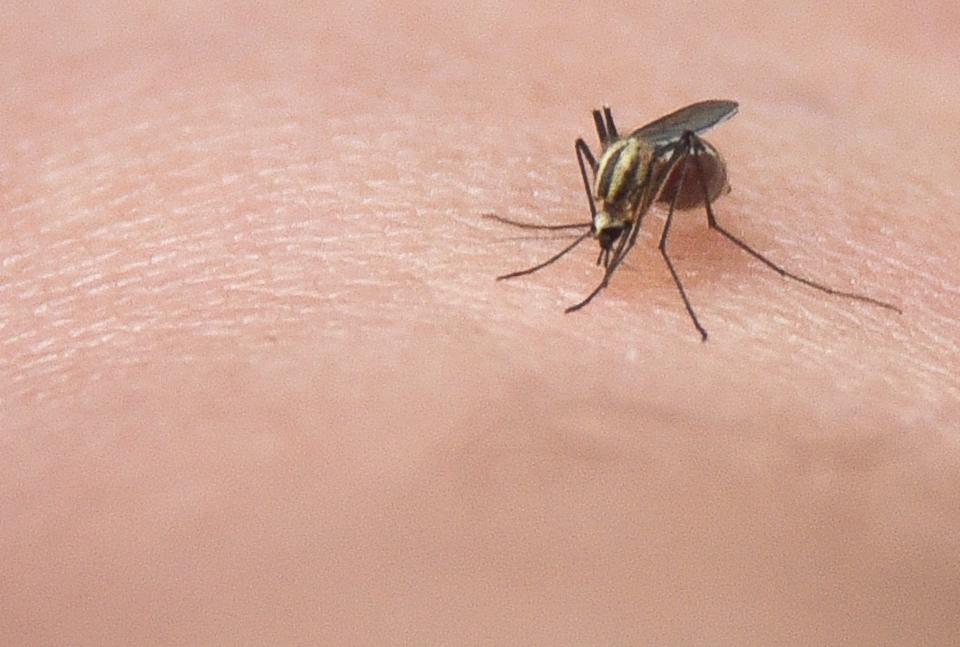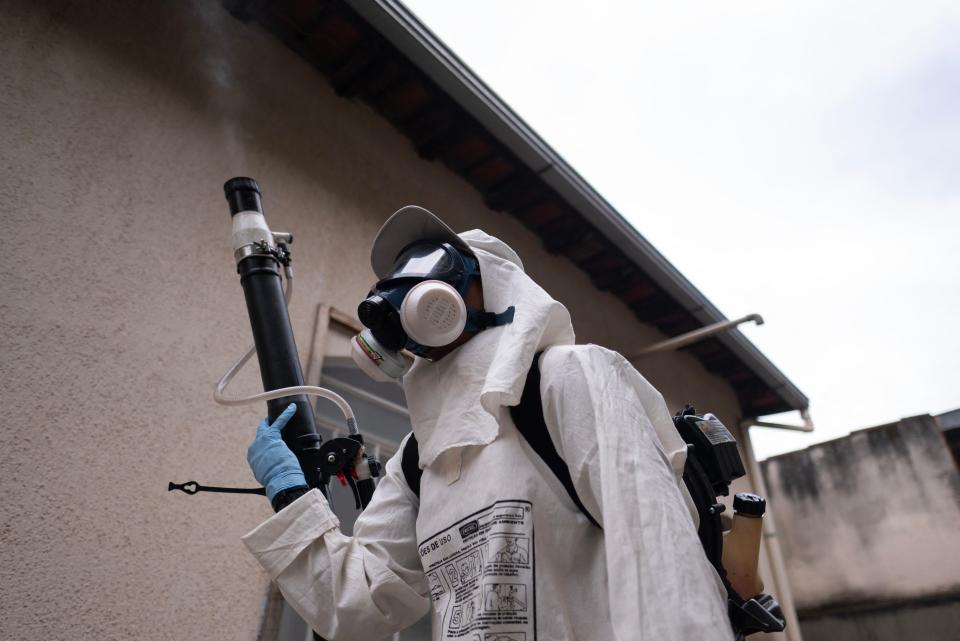Puerto Rico declares public health emergency after rise in dengue fever cases
Puerto Rico has declared an epidemic as the number of dengue cases continues to rise.
At least 549 cases have been reported so far and more than 340 people have been hospitalized, according to the island’s health department.
"As of March 21, 2024, the Department of Health's epidemiological surveillance of diseases has observed a 140% increase in dengue cases for Puerto Rico compared to the same period last year," the department said in a press release on Monday.
Here's what you need to know.

What is dengue fever?
Dengue fever is a potentially deadly viral infection that comes from mosquitoes and is transmitted to humans. Typically, the virus is more common in tropical and subtropical areas. Some people that are infected with the virus won’t experience symptoms at all. However, people who do have symptoms experience a high fever, headache, body aches, nausea or rash according to the World Health Organization (WHO).
In a post on X, Puerto Rico Health Secretary Carlos Mellado López said he has been monitoring the outbreaks of dengue and coronavirus.
"The increase in dengue cases requires that all components of society join forces in order to prevent the contagion and spread of this virus, which is why we call for prevention" Mellado López wrote in the post.
El aumento de casos de dengue requiere que todos los componentes de la sociedad aúnen esfuerzos en aras de prevenir el contagio y la propagación de este virus, por eso hacemos el llamado a la prevención. pic.twitter.com/ugMtJrDG6D
— Carlos Mellado López (@prsecsalud) March 26, 2024
Jamaica's dengue outbreak
On Sept. 23, Jamaica’s Ministry of Health declared a dengue outbreak after an increased number cases were reported. At the time, there were 1,060 confirmed dengue infections on the island, according to the U.S. Embassy of Jamaica.
By November, health officials reported that more than 3,100 people were infected and that nine people had died, according to the Guardian.
Jamaica's chief medical officer, Dr. Jacquiline Bisasor McKenzie, said in January that dengue remained a concern in the country and asked residents to monitor water containers for mosquitoes, destroy potential breeding sites, and wear protective clothing and mosquito repellant to help prevent the spread of the disease.
CDC issued a travel warning following dengue outbreaks in several countries

The Centers for Disease Control and Prevention (CDC) issued a Level 1 travel warning on Feb. 28 to American travelers as they take trips outside of the country. The following countries have reported an increased number in dengue cases:
Argentina
Brazil
Colombia
Costa Rica
French Guiana
Guadeloupe
Guatemala
Haiti
Jamaica
Martinique
Mexico
Nicaragua
Panama
Paraguay
Saint Barthelemy
Saint Martin
Turks and Caicos Islands
The CDC also warns travelers to protect themselves by preventing mosquito bites.
Ahjané Forbes is a reporter on the National Trending Team at USA TODAY. Ahjané covers breaking news, car recalls, crime, health, lottery and public policy stories. Email her at aforbes@gannett.com. Follow her on Instagram, Threads and X @forbesfineest.
This article originally appeared on USA TODAY: Dengue fever alert: Puerto Rico declares epidemic

